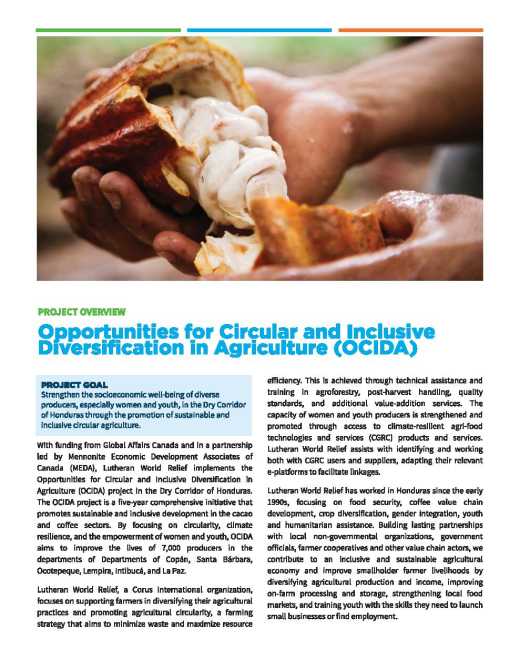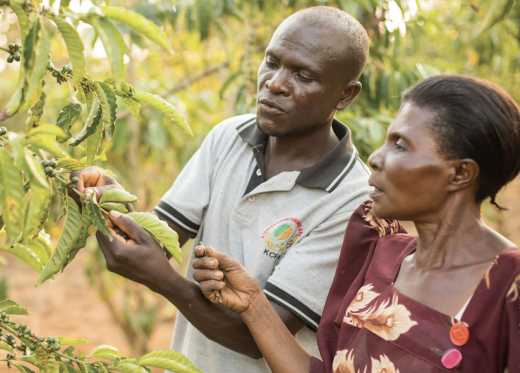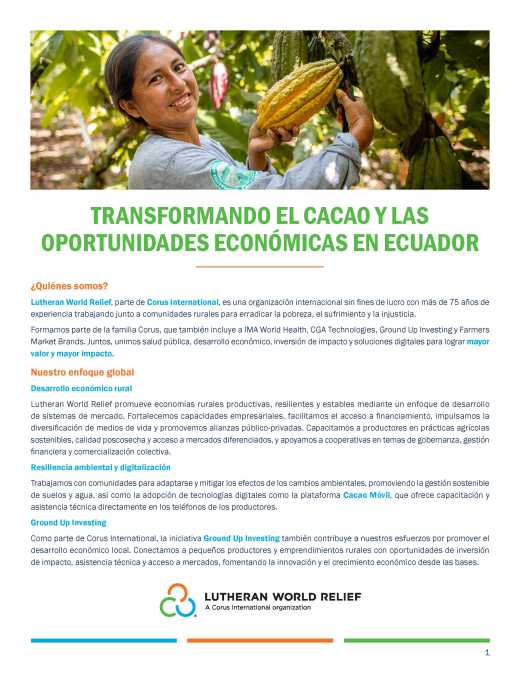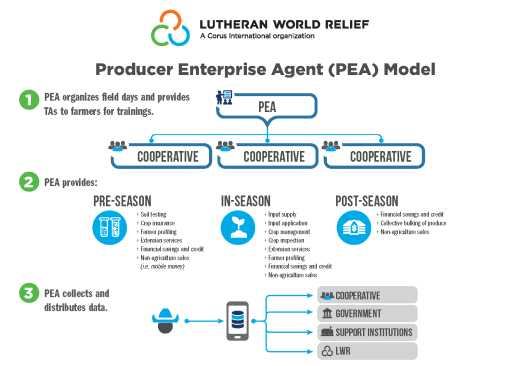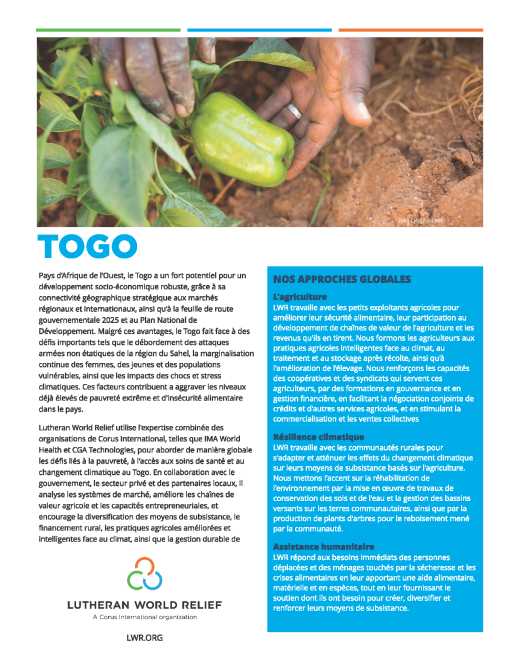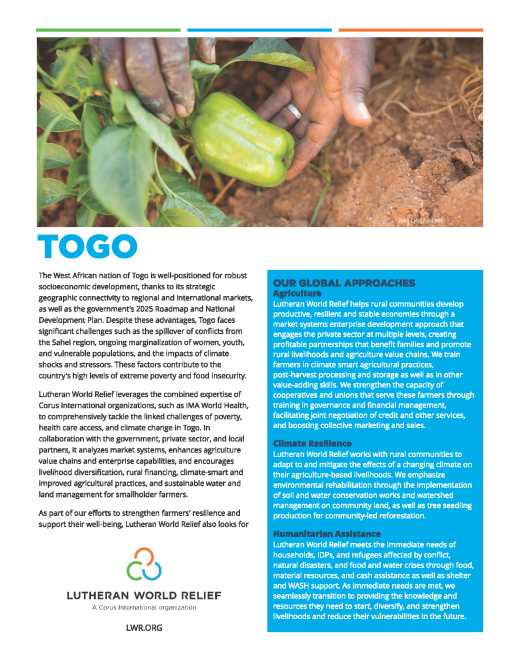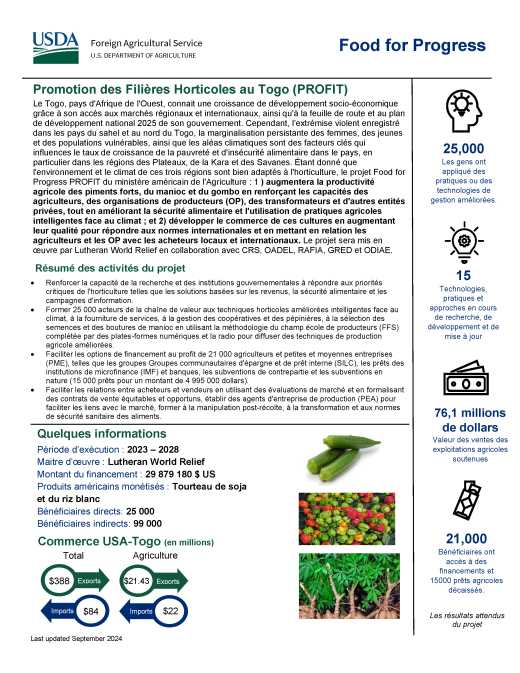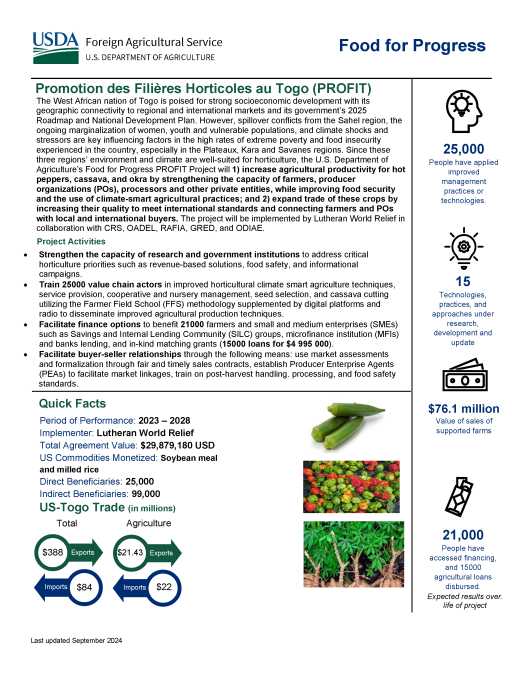Opportunities for Circular and Inclusive Diversification in Agriculture (OCIDA)
Project Overviews
Opportunities for Circular and Inclusive Diversification in Agriculture (OCIDA)
With funding from Global Affairs Canada and in a partnership led by Mennonite Economic Development Associates of Canada (MEDA), Lutheran World Relief implements the Opportunities for Circular and Inclusive Diversification in Agriculture (OCIDA) project in the Dry Corridor of Honduras. The OCIDA project is a five-year comprehensive initiative that promotes sustainable and inclusive development in the cacao and coffee sectors. By focusing on circularity, climate resilience, and the empowerment of women and youth, OCIDA aims to improve the lives of 7,000 producers in the departments of Departments of Copán, Santa Bárbara, Ocotepeque, Lempira, Intibucá, and La Paz.
Lutheran World Relief, a Corus International organization, focuses on supporting farmers in diversifying their agricultural practices and promoting agricultural circularity, a farming strategy that aims to minimize waste and maximize resource efficiency. This is achieved through technical assistance and training in agroforestry, post-harvest handling, quality standards, and additional value-addition services. The capacity of women and youth producers is strengthened and promoted through access to climate-resilient agri-food technologies and services (CGRC) products and services. Lutheran World Relief assists with identifying and working both with CGRC users and suppliers, adapting their relevant e-platforms to facilitate linkages.
Lutheran World Relief has worked in Honduras since the early 1990s, focusing on food security, coffee value chain development, crop diversification, gender integration, youth and humanitarian assistance. Building lasting partnerships with local non-governmental organizations, government officials, farmer cooperatives and other value chain actors, we contribute to an inclusive and sustainable agricultural economy and improve smallholder farmer livelihoods by diversifying agricultural production and income, improving on-farm processing and storage, strengthening local food markets, and training youth with the skills they need to launch small businesses or find employment.
Download Now Sep 12, 2024

